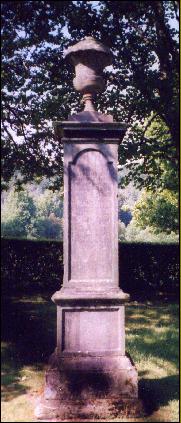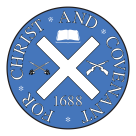
Inveraray Covenanter Memorial
Inveraray Castle
Inveraray
Argyll
NGR - N*
Those who were executed are commemorated on a memorial that was initially erected in the garden of the Bank of Scotland in Church Square in Inveraray, in 1754. This memorial was subsequently relocated in 1983, and erected in the grounds of Inveraray Castle, a short distance to the north east of the main entrance, beside the road and adjacent to the bridge. It bears a Latin inscription and the stone used was a grey Chlorite. A plaque was erected at the original site.
Inveraray Executions
The executions that took place in Inveraray in 1685 have their roots in the year 1681, when the 9th Earl of Argyll was condemned for refusing to submit to the full requirements of the Test Act. (This asserted the supremacy of the Protestant Religion, but also claimed the Devine Right of the Crown). Eventually, he escaped from Edinburgh Castle and found his way into exile, in Holland.
The Earl kept a close watch on events in Scotland with a view to returning with a force of men. By the time that the "field executions" reached a peak in April 1685, his planned invasion to oust the repressive administration of James VII was finally ready. This was to be timed to coincide with the Duke of Monmouth's invasion into south western England. The Earl set sail, from Amsterdam, on 2 May, and landed, with his armed force, in Kintyre on 20 May.
The invasion was unsuccessful, and the Earl was captured at Renfrew, as he was crossing the River Cart. (There is a small monument in the grounds of the Normandy Hotel which commemorates this event). He was taken to Edinburgh, where he was tried, and, at the insistence of James VII, he was executed.
Meanwhile, the Marquess of Atholl had been given royal authority to move on Argyll's lands to ensure that the Earl's kinsmen would not rally to the cause. Atholl was assisted by other Royalists, including the Grahams, who had billeted themselves in Inveraray. A number of the Earl's kinsmen were summarily executed, by the Grahams, at this time, and before an official order to cease this activity was issued, seventeen men were hanged; one having his arms cut off before being set on the scaffold.
It is a matter of historical record (1), that these"- with other adherents of evangelical religion and the liberty of the people", met their death at this time. Amongst the seventeen hanged were Colin Campbell, brother German to Walter Campbell of Skipness, and a Major Campbell, who its was who had his arms removed prior to being hanged.






